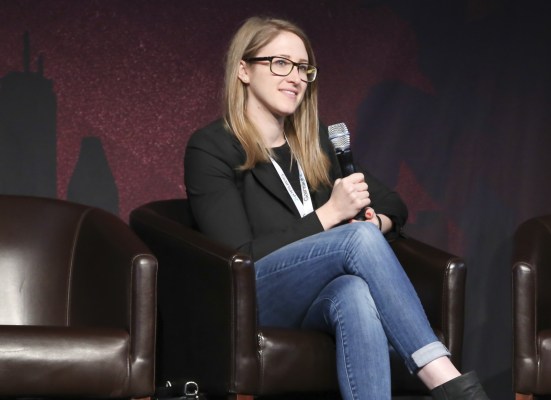Diversity in the tech industry is dismal, with white men making up the vast majority of its workforce. That being said, tech companies are aware of the lack of diversity and some are even actively taking steps to do something about it.
Pinterest, for example, recently announced a new diversity initiative called Inclusion Labs, in partnership with a startup called Paradigm. As part of Inclusion Labs, Pinterest has set goals to increase hiring rates for full-time engineering roles to 30% female, and interview at least one person from an underrepresented background as well as one woman for every open leadership position.
“We don’t believe that there are any silver bullets to getting diversity right, but it’s going to take creative approaches and a lot of hard work,”Pinterest Head of Recruiting Adam Ward told TechCrunch. “Some will work and others will not. Partnering with Paradigm will allow us to be thoughtful about what we try to and to share our findings and progress with the greater tech community along the way.”
I recently sat down with Paradigm CEO Joelle Emerson to chat about her work with high-profile tech startups, and hear more about what’s driving her to help foster diversity and inclusion in Silicon Valley and the tech industry at large.
From the Courtroom to Silicon Valley
Before Emerson started Paradigm last year, she practiced law around gender equality at Equal Rights Advocates, a non-profit organization for women’s rights. She had one goal in mind: to use the law to have a broad impact on equal opportunities in the workplace. But, over time, she became frustrated because of the reactive nature of the job. By the time Emerson would receive a case around sexual harassment or discrimination, it was too late in the sense that there was nothing she could do to protect those women from discrimination or harassment.
“In litigation, you’re helping people mostly one by one by one,” Emerson says. “While you’re doing that, you’re seeing all these patterns going on that are leading them to be discriminated against and harassed, and you have no influence over those patterns. You’re just trying to get them into a better situation and that really frustrated me because I felt like my impact was really limited. I felt like the work I was doing was really reactive and I didn’t have any ability to sort of proactively create better outcomes.”
When tech companies started releasing their diversity reports, saying that they were committed to doing better, that got Emerson thinking about the specific strategies companies were using to address discrimination.
“These tech companies were saying they were committed to doing better, but it didn’t really seem to square with the patterns that I saw happening in my cases where women were being passed over for promotions,” Emerson said. “Time and time again that was happening across their organization. They were being sexually harassed and managers weren’t being punished for doing that. So, I wanted to figure out what was going on. These folks were saying they really cared a lot about diversity, they said they were working on it, so I wanted to figure out what they were doing.”
Working with Silicon Valley’s Unicorn Startups
That’s when Emerson saw an opportunity to intervene at an earlier stage by partnering with the companies that said they want to get better about diversity and inclusion. Paradigm’s first client was Q&A platform Quora. Emerson says she landed Quora by offering up some of Paradigm’s services for free. Quora ended up liking what Paradigm was doing, and its VP of recruiting and HR, Sarah Smith became willing to be a reference for Paradigm when approaching other tech companies. Today, Paradigm works with 13 tech startups, including Asana and multibillion-dollar, “unicorn” startups like Pinterest, Slack and Airbnb.
Here’s how it works. Paradigm first assesses companies to determine opportunities where the they can create better diversity and inclusion outcomes through attraction (pipeline, sourcing and communications), selection (interviewing and decision-making), development (onboarding, performance management, mentoring and sponsorship, and promotions) and retainment (culture, rewards and recognition, and policies and benefits).
At Pinterest and Slack, for example, Paradigm has hosted unconscious bias training programs for their employees. At Pinterest, Paradigm started with the executive team and then trained the entire company. At Slack’s offices in San Francisco and Vancouver, the training is mandatory for anyone who manages people or might participate in hiring interviews with potential employees.
The goal of these training programs is not to actually “fix” or get rid of biases, despite some misconceptions around unconscious bias training, Slack VP of Policy and Compliance Anne Toth told TechCrunch.
“Biases are developed over a lifetime and there is no two-hour training session that can ‘fix’ anyone,” Toth said. “What training can do, however, is make people aware of their inherent biases and give them tools to help minimize the negative outcomes of these biases. Unconscious bias training should never be a check-the-box exercise. Any company that does that is wasting their time. The only reason to do this kind of training is if you plan to apply these tools to all your hiring, performance feedback, and employee development programs and processes. Joelle has been a huge help in taking this from employee training to daily practice at Slack.”
Down the road for Paradigm, the aim is to scale the business and work with more clients. In fact, Paradigm wants to work with every company in Silicon Valley, and in tech more broadly, that cares about diversity and inclusion, but doesn’t have its strategies nailed down just yet, Emerson said. “We want to be working with every single company that wants to take a more innovative, more data-driven, more strategic approach to improving their diversity and inclusion outcomes.”
